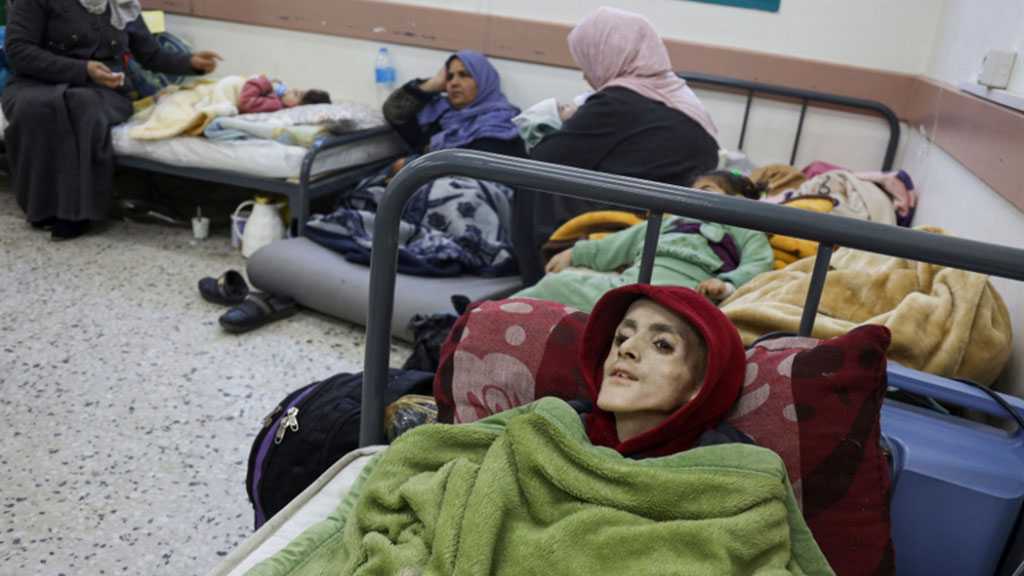The Gazans Aren’t Waiting for Ramadan: They’re Fasting without Fasting

Translated by Staff, Al-Akhbar Newspaper
A wall on the western side of Al-Sahaba Market, northeast of Gaza City bears the words: “Ramadan Karim despite war and famine.”
This is a reminder that we are only a week away from the advent of the blessed month of Ramadan.
During previous years, decorations and large lanterns filled Gaza’s streets, while crowded markets featured large quantities of goods, such as cheese, sweets, dates, dried fruits, Qamar al-Din, carob juices, and licorice.
This year, Gaza has its own rituals that began a month before the crescent even appears. In northern Gaza, where famine preys on hundreds of thousands of besieged people and kills children and elderly on a daily basis, people began their fast early. Yes, they have been fasting for about a month.
“If someone eats a lemon all day or a quarter of a loaf of bread, if he can afford it, is he not fasting?” wonders Hajjah Umm Ayman.
“In the entire market, you won’t find a can of beans or a piece of cheese. The price of a kilo of locally manufactured sweets has reached 70 shekels, and the available quantities are very limited. None of us know what we will eat for suhoor and what we will break our fast with. May God relieve us,” she tells Al-Akhbar.
In the Al-Sahaba market, Hajj Abdel-Ati Hamad sits facing an empty stall used for goods. Slapping one palm of his hand with the other, he tells Al-Akhbar about how things have changed since last year.
“There were hundreds of types of Ramadan goods. I couldn’t find place to put all kinds of cheese, dates, sweets, and nuts. People in Gaza are creative when preparing food. My family likes family gatherings. The sweetest thing about the holy month is gathering for breaking the fast and suhoor and eating qatayef after Tarawih prayers. Today, there is nothing. A kilo of rice costs 120 shekels. Imagine $35 for one kilo. Who can afford to pay $100 to feed a family of 10 people, and this is rice without meat. The rest is the same.”
Amid the famine, Gazans are waiting for the outcome of the ceasefire negotiations, as the “Israeli” siege alters the societal reality, separating families and dispersing them throughout the enclave. There are many examples – in some families the father lives in northern Gaza, while the others were displaced to the south. There are mothers whose daughters fled with their husbands to areas cut off by tanks.
Maryam Mahmoud is a mother of six young men, three of whom were displaced to the city of Rafah and two remained in northern Gaza. She lost contact with one of them after he was displaced two months ago to the central governorate.
“Ramadan without the six of them eating from the same plate with me has no flavor. Our hope in God is great. He will reunite us again,” Mahmoud says.
Comments
- Related News




